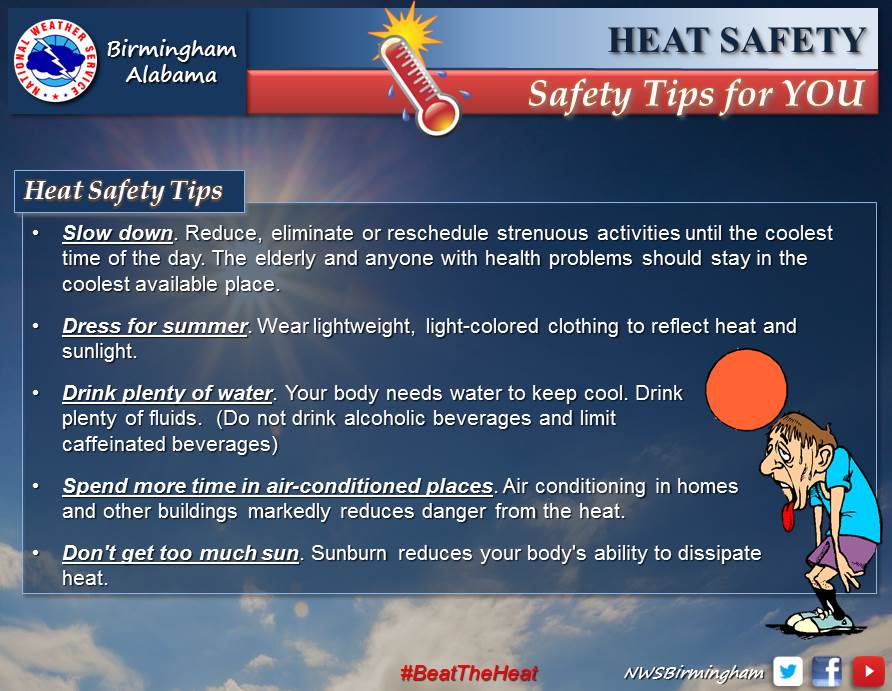Safety tips for upcoming heatwave
Published 8:36 pm Wednesday, May 22, 2019
By J.R.TIDWELL / Editor
The National Weather Service in Birmingham predicts that temperatures will soar into the mid ’90s by the end of the week, with 96-97 degrees forecast for Memorial Day.
While high summer temps are nothing new to those used to living in the South, such high numbers this early in the year are a bit out of the ordinary.
In fact, the temperature may reach near-record highs for this time of year in central Alabama.
“Heat-related illnesses occur when the body’s temperature control system is overloaded. The Alabama Department of Public Health cautions everyone to be alert to the warnings that may signal help is needed,” said the organization in a release.
“Heat stroke, sometimes called sunstroke, is the most serious heat-related illness. It occurs when the body becomes unable to control its temperature. The body’s temperature rises rapidly, the sweating mechanism fails, and the body is unable to cool down. Body temperature may rise to 106 degrees F or higher within 10 to 15 minutes.
“Heat stroke can cause death or permanent disability if emergency treatment is not provided. People should drink plenty of water, stay in an air-conditioned room, and keep out of the sun. The public should also check on elderly relatives, neighbors and friends, and ensure pets have plenty of water to drink and shade to cool off. Everyone needs to adjust their activities and be alert to warnings that signal help is needed.”
Warning signs of heat stroke vary, but include an extremely high body temperature (above 103 degrees), red, hot and dry skin (no sweating), rapid, strong pulse, throbbing headache, dizziness, nausea, confusion and unconsciousness.
“First aid recommendations are to get the person to a shady area, cool rapidly in a tub of cool water, place in a cool shower, spray with cool water from a garden hose, splash with cool water, or, if the humidity is low, place in a cool, wet sheet and fan vigorously,” ADPH said in the release. “Monitor body temperature and continue cooling efforts until the person’s body temperature drops to 101 to 102 degrees F. If emergency medical personnel are delayed, call a hospital emergency room for further instructions.”
According to ADPH, follow these preventive measures to avoid heat-related illnesses:
· Drink more fluids, and avoid beverages containing alcohol or caffeine.
· When temperatures are extreme, stay indoors, ideally in an air-conditioned place.
· Take a cool shower or bath and reduce or eliminate strenuous activities during the hottest times of the day.
· Protect yourself from the sun with a wide-brimmed hat, light-colored, loose-fitting clothing and use of a sunscreen of SPF 15 or higher.
· Never leave pets or people in a parked vehicle.







